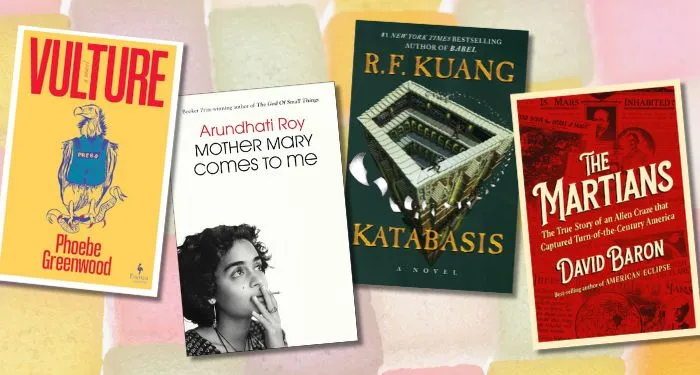In 1955 the Belgian public was scandalized by an Antwerp professor’s proposal that the Congo, the kingdom’s enormous Central African colony, should be slowly prepared for independence, even if it would only be granted some thirty years hence. To Belgium’s politicians, businesspeople, and settlers in Africa, and even to many of its academics, it still seemed entirely appropriate that the small European country’s richly profitable hold on a distant possession eighty times its size should endure for decades to come.
The greedy logic behind this delusion was tightly bound up in the profoundly tragic history of the exploitation of the Congo. During the carve-up of the African continent at the Berlin Conference in 1884–1885, Belgium—which had existed as an independent nation only since 1830—convinced the other European powers to cede control of the enormous territory to its king, Leopold II.
In order to justify his bid for dominion over such a large chunk of Africa, Leopold avoided any hints of immodest ambition. Instead he invoked altruistic aims: the Congo had become the dark heart of the continent, he claimed, because a morally scandalous international traffic in slaves via East Africa and the Arab world continued unabated there. Under his stewardship of the territory, a spirit of enlightened Christian humanitarianism would prevail. Leopold promised not merely to end the shameful predation long inflicted on backward tribespeople in the region by Muslim slave traders but also that, under his benevolent tutelage, Western education would deliver desperately needed uplift to the Congo’s huge population.
All of Europe’s imperial powers in Africa developed self-righteous narratives to justify colonial rule over Black people. Dominant powers everywhere have routinely claimed to act out of altruism, and among their justifications for territorial expansion, bloodshed, or repression has always been the provision of civilizational benefits to the colonized. This famously became known as the White Man’s Burden, shorthand for the colonizers’ paternalistic duty to improve the lot of Africans by force-marching them into a fast-modernizing world.
In modern times, though, there have been few more shocking examples of the hollowness and cynicism of such claims than Belgium’s treatment of the Congo. The Congo became Leopold’s personal property, and he exploited it mercilessly to amass an immense fortune. By one widely cited estimate the king’s scheme to turn much of northern Congo into a leading producer of rubber, a newly indispensable resource in an age when automobile production was rapidly increasing, caused the deaths of as many as ten million Congolese. Countless villagers were rounded up and forced to tap rubber trees under brutal production quotas. Men who underperformed were frequently punished by having a hand amputated. Many others were executed or casually shot. Women were commonly rounded up and held hostage in sequestered villages as yet another way of extracting work from men. Death by starvation was commonplace.
Vicious tactics like these became widely known with the publication in 1998 of King Leopold’s Ghost, by Adam Hochschild. This extreme exploitation, the very opposite of humanitarianism, has largely obscured another pernicious legacy of both Leopold’s and the Belgian state’s colonial stewardship of the Congo after his private ownership ended in 1908. Contrary to its pledges, Belgium did precious little in the Congo to promote education beyond grade school. In 1960, when independence came suddenly, this new nation of 15 million people had only thirty university graduates. This was not the result of what could be called neglect. A popular saying among Belgian colonizers in the 1950s pithily explained the scant investment in education: “No elites, no problems.”
Finding ways of limiting Africans’ advancement was central to Belgium’s strategy for sustaining its dominance over a land so rich in resources that it was often called a “geological scandal.” In the early 1960s an American congressman from California, Donald L. Jackson, went even further, saying that “Congo was the strategic key to Africa,” a continent whose “untouched natural wealth has perhaps a greater potential than that of the rest of the world combined.” The extraordinary new documentary Soundtrack to a Coup d’Etat, by the Belgian filmmaker Johan Grimonprez, makes the long-standing connection between the Congo’s terrible history and its vast underground mineral wealth explicit through occasional flashes of advertising for Apple’s iPhone, which depends on rare metals like coltan, as do some of today’s leading hopes for preventing runaway global warming: electric vehicles and the batteries that power them.
In 1958, by which time strategizing and discussion among Africans about freeing themselves from Europe was widespread, the progressive prime minister of Ghana, Kwame Nkrumah, organized what he called the All-African People’s Conference in Accra, to which he invited other African politicians who aspired to independence. Belgium denied the most prominent political figure in the Congo at the time, Joseph Kasa-Vubu, permission to attend. It was concerned that contact with Nkrumah, whose country had just gained independence from the British the year before, would radicalize him. Brussels approved travel to Accra on a strictly personal basis, however, for another budding Congolese politician: Patrice Lumumba. This turned out to be a fateful decision, for it was Lumumba, then the relatively obscure leader of a fledgling political party, the Mouvement National Congolais (MNC), who turned militant.
Lumumba was born in 1925 and grew up in Onalua, a village in central Congo, the rural hinterland where some of Leopold’s worst rubber-collecting depredations occurred. By the time of his childhood, when forced labor, if not amputation, was still practiced, cotton had become the main colonial crop there. Not unlike many Black Americans who were desperate to escape their entrapment in sharecropping in the Deep South, Lumumba fled his native region while still a teenager in the early 1940s. He never finished primary school and lacked the travel pass that the colonial authorities required of Blacks. But with only three francs in his pocket, he made his way, relying on the goodwill of strangers who granted him passage on canoes and trucks.
His first stop was Kalima, a tin-mining town in a neighboring province, where he found work in an industrial canteen. There, for the first time, he experienced running water and electricity. Later Lumumba fled Kalima to avoid punishment for pilfering company goods to sell on the black market. His next stop, four hundred miles away, was a giant step up: the colony’s third-largest city, Stanleyville (later renamed Kisangani). Its economic importance stems from its location at the farthest navigable point up the Congo River from the capital, Leopoldville (later Kinshasa). Stanleyville became famous in Western literature, first in Joseph Conrad’s Heart of Darkness, then in V.S. Naipaul’s A Bend in the River.*
In his deeply researched and absorbing biography The Lumumba Plot, which ranges from these childhood beginnings to a grim death at the hands of Congolese separatists and their Belgian advisers—with plenty of CIA encouragement and intrigue—Stuart Reid relates how Lumumba found work as an entry-level clerk in a government office in Stanleyville. To improve his French and further his prospects, he enrolled in a correspondence course, took night classes, and then left for a nine-month stint in the capital to study at a new government postal training school. Upon graduation he returned to Stanleyville, where he was hired as a third-class clerk earning 1,500 francs a month—as Reid says, just enough to eat—plus a housing allowance and a bicycle.
Dissatisfied, Lumumba borrowed money to build a concrete house with brick pillars and to marry, sight unseen, his third wife, Pauline Opango, a fourteen-year-old from Onalua, with whom he had four children. Bent on advancement, he rose each night at 2:00 AM to read and took a cold bath at 5:00 AM before leaving for work. He also became a regular at the public library—later he became its librarian—and devoured Hugo, Molière, Rousseau, Voltaire, and whatever other French classics he could find.
What Lumumba seems to have craved most in this period was acceptance by the white power structure, which enforced a slightly diluted form of apartheid throughout the colony. His carefully plotted upward trajectory was temporarily derailed, though, by his arrest and conviction for postal embezzlement. During the trial the prosecutor and judges took turns ridiculing his quest for betterment. Mocking Lumumba’s pretensions to being a self-cultivated evolué, the former declared that he “owes it to the state that he is not a slave,” while the latter said that he was “not that far away from the most primitive natives.”
After serving his prison term, Lumumba moved to Leopoldville, where he secured a job as a salesman for Polar, the upstart of the capital’s two major beer companies. As he quickly honed his skills in Lingala, the lingua franca of western Congo, he began to mull an entry into politics. He was now fluent in three of the territory’s four major languages—Swahili, Tshiluba, and Lingala—but little else seems to have immediately predisposed him for success in politics. He was all but unknown and had neither a strong ethnic base, nor money of his own, nor a rich network of backers to draw on. And he had a checkered criminal background.
At the outset of his public life, Lumumba’s politics were equally unremarkable. His ideology, such as it was, would have been considered moderate in the Belgian colony at the time. He expressed no urgency about independence, only vaguely averring that it should come “within a reasonable time.” In The Congo, Land of the Future: Is It Threatened?, an obscure book he wrote while in prison, Lumumba struck even more accommodationist tones: “It is easy enough to shout slogans, to sign manifestos, but it is quite a different matter to build, manage, command, spend days and nights seeking the solution to problems.” Even after eventual independence, his country would need to remain in loose federation with Belgium, he argued, adding that political rights should be reserved for what he called “civilized” Africans and not extended “to people who were unfit to use them, to dull-witted illiterates; that would be to put dangerous weapons in the hands of children.”
In Reid’s masterful account, though, Lumumba’s trip to Accra, where he listened to impassioned speeches about independence by people like Frantz Fanon, the Kenyan politician Tom Mboya, and especially Nkrumah, utterly transformed him. “Accra marked a turning point in Lumumba’s thinking,” Reid writes.
For one thing, it gave him his first real exposure to pan-Africanism, the idea that indigenous people from across the continent were all engaged in the same collective struggle. The conference also gave him a chance to compare notes with other African nationalists. As he did so, he could only have come to the disappointing conclusion that the Congo lagged far behind its peers.
He returned home galvanized, vowing to “wipe out the colonialist regime” and demanding freedom for his country by the end of 1960. The influence of Nkrumah, who had peacefully won Ghana’s freedom under the slogan “Independence now!,” couldn’t have been clearer.
Such would not be the case for the Congo. It is hard to read histories about the following months there without having the sensation of time shifting dizzily into fast-forward, as momentous events come in accelerating clusters and then spin violently out of control.
Lumumba soon met Joseph-Désiré Mobutu, then a dabbler in journalism with an army background. He convinced Mobutu to help him raise the MNC’s profile and organized the first political rally in the country’s history. Not to be overshadowed, the older and better-established political party ABAKO, led by Kasa-Vubu, planned its own rally, which was barred by the authorities but proceeded anyway and turned out twice as many people as the MNC’s had. Lumumba rode on the back of Mobutu’s motorcycle to witness it. ABAKO’s rally coincided with a major soccer match nearby, and when it ended the crowds merged and things turned rowdy. This prompted a violent crackdown by the Belgians, with the Force Publique—the Belgian colonial army—firing into the crowd and white shop owners wielding guns of their own. In four days of disorder, at least forty-nine Congolese were killed.
The turmoil in what the Belgians regarded as their model colony shattered their confidence about perpetuating colonial rule. The country’s young king, Baudouin, pledged to oversee its independence “without imprudent haste,” but hastiness ensued. The sudden prospect of freedom, however vague, supercharged political activity in the Congo, for no one more than Lumumba, who barnstormed the country, giving stirring speeches about the imperative of liberation. During a stop in Stanleyville, he warned that Belgium was preparing to grant only a “simulacrum of democracy,” and he urged a boycott of upcoming local elections. Riots broke out, and he was arrested for incitement and given a six-month sentence.
In the West, Lumumba has all too often been reduced to a two-dimensional character, usually depicted as a wild-eyed radical. But as Reid shows, he was correct: by October 1959 the Belgians were indeed planning for a transition that would allow them to control the executive branch in the colony for another five years. The United States understood little about the Congo, or for that matter about Africa, a continent where it had fewer foreign service officers than it had in West Germany. An American embassy memo from Leopoldville got one thing right, though:
The Belgian play would therefore be to give up without too much difficulty the things of no consequence, and to try…to maintain Belgian control over essential central services—the army, economic policy, foreign policy—at least for a certain period.
Brussels even hoped to retain Baudouin’s position as the Congo’s head of state.
In response to the riots and new political activism, Belgium hosted a conference of politically minded Congolese in Brussels called the Table Ronde. When they convened on January 20, 1960, attendees protested the absence of the imprisoned Lumumba. As a result of their clamor, Belgium flew him straight from jail to the conference in borrowed clothes, and he used his ex-prisoner’s prestige to press demands for independence by June 1, 1960. The Belgians conceded, agreeing to June 30. Few, including Lumumba, could have conceived any of this even a few weeks earlier.
Back home, he quickly proved himself a formidable campaigner. He was tall, lithe, and strikingly modern in style: parted hair, half-frame eyeglasses, white shirts, and pencil neckties. People who knew him likened his gliding walk to the movements of a cat. Lumumba adopted the anticolonial rhetoric of Nkrumah, calling for all of Africa to be liberated and saying that the Congo had a major part to play in the continent’s freedom.
He distinguished himself further from a crowded field of candidates by running a national campaign. Whereas most of the territory’s politicians had distinct ethnic or regional bases, Lumumba insisted on a unitary government rather than a federal one and inveighed against tribal identity and religious affiliation. To succeed as a new nation, the Congo had to create a new people practically from scratch—the Congolese. That may sound obvious to Westerners, but ethnolinguistic identities bedeviled most of Africa’s newborn nations, and the vast Congo, with almost none of the highways and railway lines that help integrate countries, had few rivals for complexity.
The political developments of the previous year had been fast, but the remainder of Lumumba’s life transpired in a blur. Nearly the entire economy of the colony was in the hands of Belgian mining companies and 100,000 Belgian settlers, who had enjoyed lives of comfort built on Black servitude and began to panic at the prospect of a Lumumba-led Congo. Many fled to Europe. Money was repatriated in huge quantities along with them, crashing the economy. Lumumba’s MNC emerged from elections as the largest party in the Chamber of Representatives but well shy of an outright majority. In the Senate, it won nineteen of eighty-four seats. The resulting divided legislature led to the naming of Kasa-Vubu as president, with Lumumba as premier.
Baudouin flew to Leopoldville for the independence ceremonies, somehow expecting meek gratitude from the Congolese. The first sign that things were about to go badly off track came before his motorcade reached the center of town, when a Congolese man approached the open car in which the king stood waving to onlookers and grabbed his ceremonial sword. The guignol scene that followed, with police chasing the man as he waved the sword about harmlessly, can be seen in Soundtrack to a Coup d’Etat.
The film offers a powerful depiction not only of events from this point on in Congo but also of the blind and destructive binary logic of the cold war era. It is also perhaps the most effective record on film to date of the close ties between the American civil rights movement and the African push for independence. The connection of jazz to all of this, as the parade of artists across the screen attests—from Louis Armstrong performing before 100,000 people in Nkrumah’s Ghana and later in the Congo just before Lumumba’s assassination, to the politically inflected performances and statements from Abbey Lincoln and Max Roach, Miles Davis, Dizzy Gillespie, John Coltrane, Thelonious Monk, Charles Mingus, Ornette Coleman, Duke Ellington, Melba Liston, Archie Shepp, and others—runs remarkably deep.
Soundtrack, which is constructed as a series of dramatic jump cuts, shifts from the Belgian king’s motorcade incident to the independence ceremony held in the parliament building, outside of which looms a giant statue of Leopold II on horseback. The white-uniformed Baudouin praises his country’s imperial legacy: “The independence of the Congo constitutes the work initiated by the genius of King Leopold II, undertaken by his undaunted courage and carried on with perseverance by Belgium.”
Shortly thereafter, Lumumba disrupts the programming by delivering a defiant speech to the gathered dignitaries, politicians, and diplomats. (Only the meek and conservative Kasa-Vubu was on the official agenda.) “To you who have fought for and won independence I salute you in the name of the Congolese government,” he says.
To you all, my friends, who fought without respite, a necessary fight to end the humiliating slavery that was imposed on us by force, I ask you to make of this June 30, 1960, an illustrious day you will keep engraved in your hearts forever. We endured beatings morning, noon, and night, because we were niggers.
As members of the Belgian delegation squirm in their seats, Baudouin stares stiffly ahead. Lumumba goes on:
Our raw materials were stolen through legal documents that benefited only those in power. The law was never equal when it came to whites or to Blacks. How can we forget the executions? Or the prisons holding those who would not submit to the oppression?
Blacks in the audience applaud. The film flashes to the American drummer Art Blakey hammering an explosive solo. Then Lumumba concludes, “Congo’s independence is a decisive step to liberate all of Africa.”
Speaking to reporters at the airport before flying home, the Belgian prime minister, Gaston Eyskens, called Lumumba’s remarks “disrespectful.” Then, five days after independence, Émile Janssens, the lieutenant general who had commanded the Force Publique since 1954, declared, “In the newly independent Congo, the role of the Congolese Army will remain the same role it always played since 1886, when Leopold II created [it]…. There will be no break whatsoever with the past.” A mutiny spread quickly through the force, and eleven days after independence Belgian troops occupied Katanga province, home to the richest mining activity in the country. With Brussels’s support it was soon proclaimed an independent nation, or a “mini-state in an operetta”—as Andrée Blouin, a pan-African activist from the Central African Republic who became Lumumba’s chief of protocol, derided it—with the businessman Moïse Tshombe at its head.
Soundtrack broadens the history of Congo’s transition to independence while simultaneously quickening its telling. White mercenaries poured into Katanga to support Tshombe while Lumumba flew to UN headquarters in New York, Washington, Ghana, and newly independent Guinea in desperate search of support for his newborn country’s territorial integrity and independence and of the troops and military equipment needed to evict the Belgians and subdue Tshombe’s separatist revolt. Under Dag Hammarskjöld, the UN deployed its first large peacekeeping operation, but the secretary-general was heavily influenced by Washington’s cold war policies and by Britain’s and France’s sympathies for Belgium. In addition to the West’s unfounded suspicions that Lumumba was a communist, Hammarskjöld also quickly lost patience with his mercurial behavior. This led to a brittle division of power between the volatile Lumumba, who had strong popular support and the backing of many in Africa and in the nonaligned world, and the phlegmatic Kasa-Vubu, who was supported by the West, with Mobutu, who had likely been on the Belgian payroll since at least 1956, waiting in the wings.
This period is depicted powerfully, albeit much less frenetically, in Blouin’s recently republished autobiography. She makes regular appearances throughout Soundtrack in home videos and other footage, but her book reveals her as a lively storyteller. It traces her childhood in Central Africa, where her French father sent her away to an orphanage for mixed-race children, from which she fled after suffering much deprivation and abuse. Later, like her young mother, she had children out of wedlock with European men. The first of them, a Belgian mining company officer, sequestered her in a villa alone to conceal their interracial relationship. A son born of a second liaison contracted malaria at age two and died after French colonial officials in the Congo refused her quinine for his treatment because it was reserved for whites only. Experiences like these radicalized Blouin, who, in addition to helping Lumumba, worked for the revolutionary government in Guinea and enjoyed entrée in Nkrumah’s Ghana.
In Soundtrack, we see Nkrumah and Ahmed Sékou Touré, the president of Guinea, militating for a United States of Africa. Although not quite neighbors, the two had merged their countries in 1958 and brought Lumumba’s homeland into their ephemeral union in 1960 at the height of the Congo’s spreading national fragmentation and civil conflict, while foreigners were meddling in the country, both openly and covertly. We see efforts on a broader scale by Indonesia’s Sukarno, at the Bandung Conference of 1955, to forge a common front of recently decolonized countries that later became the Non-Aligned Movement. We see the Egyptian leader Gamal Abdel Nasser lending his voice to the same cause. And we are introduced to Krishna Menon, India’s eloquent and forceful representative to the United Nations, who from its podium repeatedly defends the right of Africans to independence and freedom from foreign intervention.
The film’s main fault line, though, is between Washington and Moscow, and it is depicted dramatically through archival footage of leaders and politicians speaking about the Congo. CIA director Allen Dulles, puffing on a pipe as he entertains a journalist’s questions, says, “As far as I know, we don’t engage in assassinations and kidnappings and things of that kind. As far as I know, we never have.” Moments later he adds, “The idea that the CIA is always engaged in overthrowing governments, that’s false. That’s for the birds.”
This is belied soon after when we see Americans proposing precisely this in the Congo. William A.M. Burden Jr., US ambassador to Brussels, says:
The Belgians were toying with the idea of seeing that Lumumba was assassinated. I went beyond my instructions and said, “I don’t think it would be a bad idea, either.” Lumumba was such a damn nuisance it was perfectly obvious that the way to get rid of him was through political assassination.
At a time when the Eisenhower administration was demanding that other countries make a clear choice between Washington and Moscow, it openly despised Lumumba for his progressive politics, and especially because he had appealed to the Soviets for help in restoring his government’s control over the breakaway territory. It mattered little to Eisenhower and his cold war advisers like Allen Dulles and his brother John Foster, who led the State Department, that Lumumba had repeatedly requested help from Washington first. By soliciting Moscow, he had crossed a line. The Congo, moreover, possessed some of the world’s richest deposits of uranium, which was used to make atomic weapons, and the US was determined not to cede control of them to the Soviets.
In another scene someone recounts the National Security Council meeting presided over by Eisenhower that authorized targeting Lumumba. Later there is footage of the jowly and evidently self-satisfied Larry Devlin, the CIA’s man in Leopoldville, recounting his encounter with “Joe from Paris,” the agency courier who had flown there to deliver poison meant to be used to eliminate Lumumba. Incompetence remains the best explanation for why the CIA’s plan did not succeed.
We see abundant and colorful footage of Nikita Khrushchev, the garrulous and sometimes buffoonish leader of the Soviet Union. There is his well-known fist banging at the UN (where sycophantic members of his delegation felt obliged to bang too). But we also hear many bits of his speeches, which surprisingly often were about the Congo crisis and the West’s long record of exploitation of the continent. Speaking of peoples who were then still subjected to European rule, he says:
Some have yet to recognize their strength and truth. They still follow yesterday’s lynchers, their colonizers. Perhaps today, but not tomorrow. It just won’t happen! The people will rise and straighten their backs to become their own masters.
At another point, he denounces America’s stark and in places entirely legal racial separation: “Black children cannot attend school together with white children! In America Blacks get lynched! They get hanged! Is that democracy? Is that respect for man?”
Through moments like these Soundtrack reminds us often of the fierce propaganda side of the cold war. In one of its more whimsical episodes, the United States developed a ten-ounce turntable that could be dropped from the sky along with American records to win over people behind the Iron Curtain. The film also reminds us, though, of how culture was a battleground on another very different front, namely the struggle by Black Americans in politics, music, and the arts to deepen connections to Africa as a means of advancing liberation on both sides of the Atlantic.
Over black-and-white footage of Black couples dancing slowly in a club, Malcolm X, another frequent presence, says, “You’ll never get Mississippi straightened out until you start realizing your connection with the Congo.” At another point, he harangues an unseen audience:
They take these hired killers, put them in American planes, with American bombs, and drop them on African villages, and you Black people sitting over here…“cool”…like it doesn’t even involve you.
The film also shows the heights to which African American involvement in the cause of African independence sometimes rose. Abbey Lincoln and Maya Angelou lead a group of protesters into a session of the United Nations Security Council to denounce its failures in the Congo, screaming, “Murderers, assassins, Ku Klux Klan motherfuckers!” Others, including Armstrong and Gillespie, tour on behalf of the State Department, and some, like Nina Simone, unknowingly perform for groups with CIA connections.
Both the film and the biography bound toward an inevitable, horrible ending. Although the National Assembly voted to affirm Lumumba’s authority over that of Kasa-Vubu, everything else was stacked against him. As Reid documents, the CIA conspired in preventing Lumumba from using the airwaves to rally the nation to his side in the final political showdown of his short and tenuous time in power. Meanwhile access was arranged for Kasa-Vubu to proclaim his legitimacy in a radio address beamed into Leopoldville from Brazzaville, the capital of the neighboring former French Congo.
Mobutu, America’s man in the Congo (and Lumumba’s eventual successor), wheeled into action, placing Lumumba under house arrest. To everyone’s surprise he was able to escape one night under cover of darkness and heavy rain and made a long-shot attempt to reach Stanleyville, but he was captured with the help of the CIA, which hired a spotter plane to locate him. He was flown back to the capital, beaten in the back of a truck upon arrival, and soon flown to Katanga, where he was killed in January 1961 along with two of his associates by a ragged firing squad under Belgian supervision and with American knowledge. His body was dissolved in a powerful sulfuric acid bath, his bones were burned, and what remained was disposed of in a dense forest. He was thirty-five years old.
Lumumba caught the wave of ardor for independence that had begun sweeping Africa by the late 1950s, and while he benefited from those historical circumstances, he also fell victim to them. It is true that he was erratic and made a number of questionable, even bad decisions, but it would be wrong and small-spirited to overemphasize this. He was overthrown and murdered not because of his faults and missteps, but because he came up against forces that were far too powerful for him to overcome. Belgium, driven by avarice and national pride, and the US, driven by paranoia about Soviet expansionism, were irremediably hostile to African leaders who sought to preserve a degree of nonalignment, used progressive rhetoric, and spoke defiantly and proudly about Africa’s rightful place in the world.


















 English (US) ·
English (US) ·